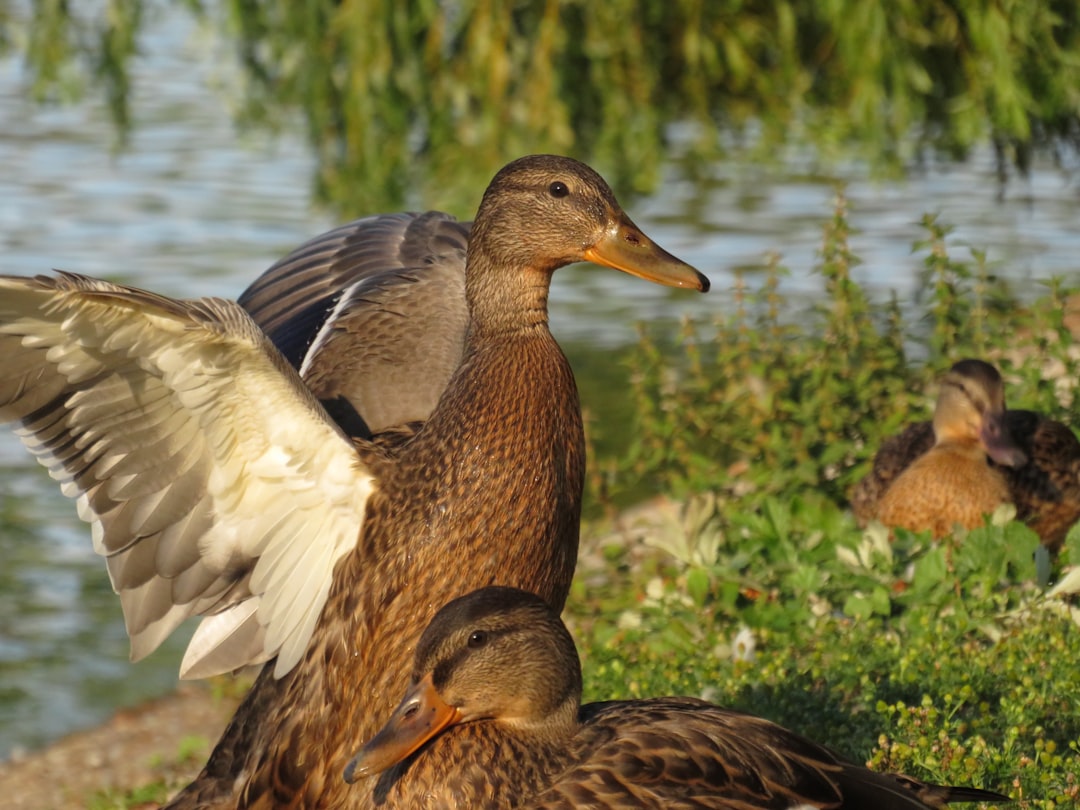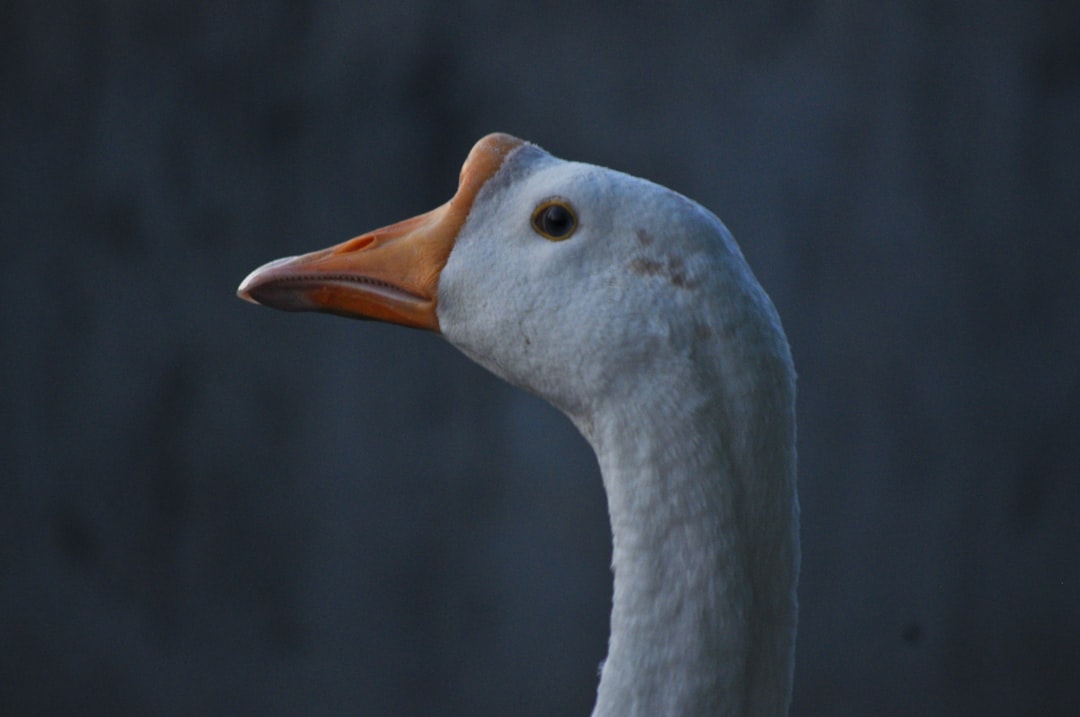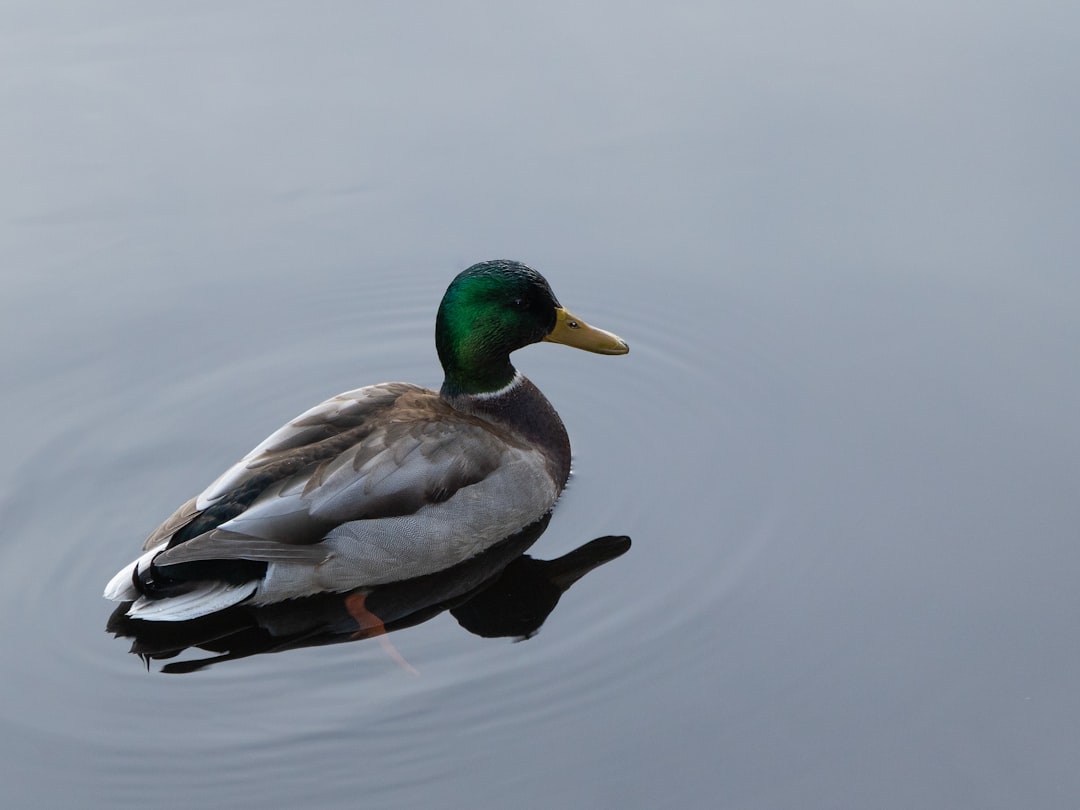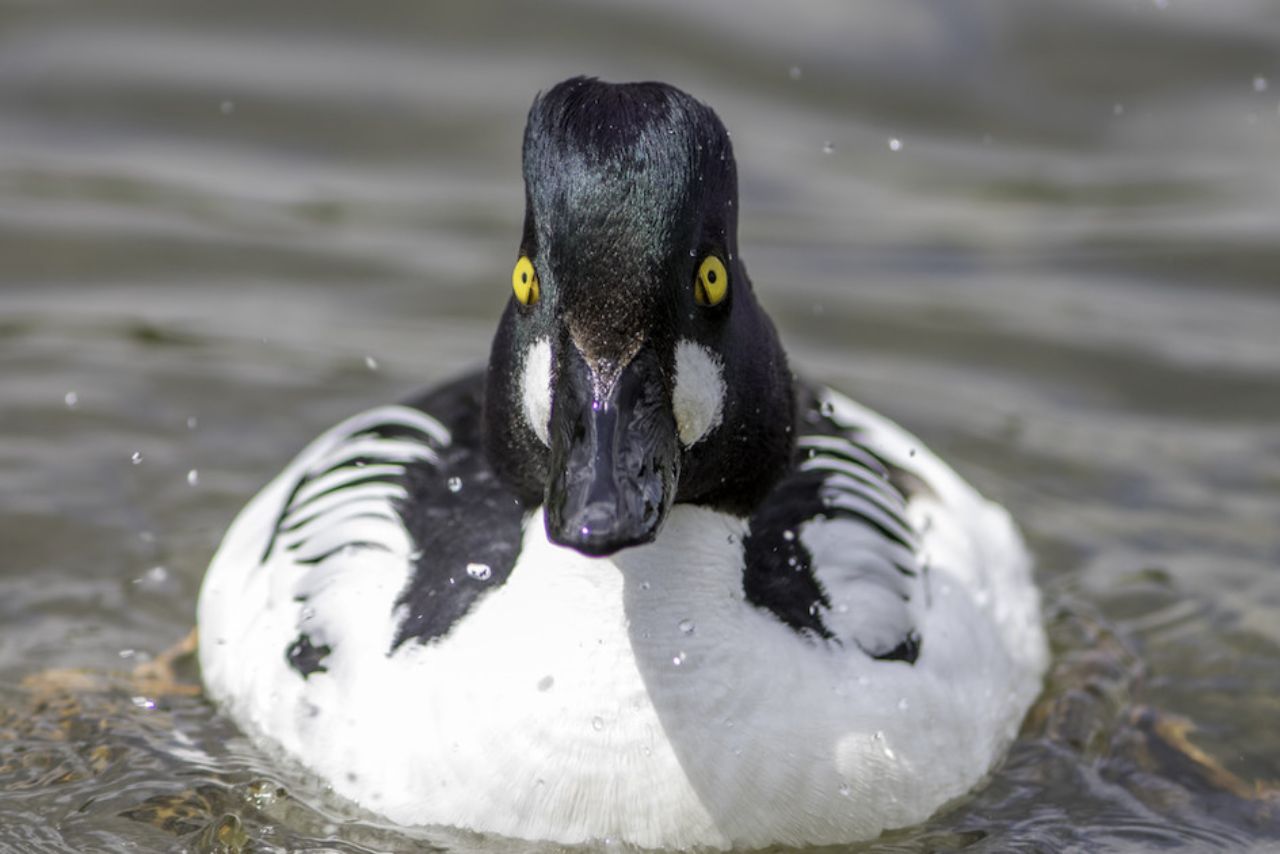Ducks are graceful and fascinating birds that have been around for millions of years.
They are known for their unique features such as their webbed feet, waterproof feathers, and the ability to dive underwater.
However, have you ever wondered about their eyesight? Do ducks have good eyesight?
In this article, we will explore the eyesight of ducks and discover how they perceive the world around them.
So, let’s dive in and learn more about the fascinating world of duck vision!
Ducks have excellent eyesight that allows them to navigate through their environment and locate food and predators.
Their eyes are located on the sides of their heads, providing them with a wide field of vision.
They also have a third eyelid, called a nictitating membrane, which protects their eyes while swimming and diving.
Ducks can see colors and have depth perception, which helps them to judge distances accurately.
Additionally, their eyes have a special adaptation that allows them to see clearly both underwater and in the air.
Exploration Of A Duck’s Eye:
A duck’s eye is uniquely designed to meet its needs. It has a large pupil that can adjust quickly to changes in light, allowing ducks to see clearly in both bright and dim conditions.
The placement of their eyes on the sides of their head also gives them almost 360-degree vision, which helps them to detect predators from any direction.
Furthermore, ducks have good night vision and can see well even in low light conditions.
Visual acuity:
Ducks have a visual acuity of approximately 20/100, which means that they can see clearly at 20 feet what a human can see at 100 feet.
This is due to the high density of photoreceptor cells in their eyes, which allows them to perceive fine details and detect movement quickly.
Their exceptional eyesight also helps them during migration, as they are able to navigate using celestial cues such as the position of the sun and stars.
10 Amazing Eyesight Facts Of Ducks
Amazing facts about ducks eye sight are as under:
1. Ducks Have a 360 Degree Vision:
Unlike humans who have a limited field of vision, ducks have a complete 360-degree vision.
This allows them to keep an eye on their predators and prey without moving their heads.
2. Ducks Can See Faraway Objects 3 Times Better Than Humans:
Ducks have a better visual acuity than humans. They can see objects that are far away three times better than we can.
This ability helps them to spot potential dangers or food from a distance.
3. Muscles Are Adjustable for Lens and Cornea in Ducks Eye:
The muscles in a duck’s eye are adjustable, which helps them focus on objects at different distances.
This feature is particularly useful when they are diving for food or flying at high speeds.
4. Clear and smooth Vision Underwater:
Ducks have a unique ability to see clearly underwater. They have a special membrane that covers their eyes and acts as a natural diving mask.
This allows them to see underwater without getting their eyes wet.
5. Eyes In Ducks Are More Sensitive To Detect Motion Than Human:
Ducks have a wider visual field than humans, and their eyes are positioned on the sides of their head, making it easier to detect movement from various angles.
They have a higher number of motion detecting cells in their retina, which helps them to detect prey and predators more effectively.
6. Ducks see colors more vigorously than Human do:
Ducks have four types of color receptors in their eyes, while humans have only three.
This means that they can see a wider range of colors and more vividly than we can. They can also see ultraviolet light, which is invisible to us.
7. Ducks have better vision at night than at dawn and dusk:
Ducks have a much larger pupil than humans, which allows more light to enter the eye, enhancing their vision in low light conditions.
They also have a special reflective layer behind their retina called the tapetum lucidum, which reflects light back through the retina, allowing them to see better in dim light.
However, their vision is not as good during dawn and dusk because the sun’s glare can affect their ability to see.
8: Ducks Have “four-dimensional” Color Vision (Tetrachromatic)
Ducks have four types of cone cells in their eyes, allowing them to see a wider range of colors than humans.
9: UV Forcefields:
Ducks have a special oil on their feathers that reflects UV light, acting as a protective forcefield for their eyes against harmful UV radiation.
10: Bonus Fact: Nictitating Membrane Make Ducks Unique
Ducks also have a third eyelid called a nictitating membrane, which helps to protect their eyes while they’re swimming or diving underwater.
What Is The Range Of Duck Vision?
The range of duck vision can vary depending on the species.
For example, mallards have a visual range of approximately 1,000 feet, while diving ducks such as canvasbacks and scaups can see up to 3,000 feet away.

This exceptional eyesight enables them to locate food sources and avoid predators even at great distances.
Ducks possess incredible eyesight that allows them to perceive fine details, detect movement quickly, and navigate their environment effectively.
Their visual acuity is exceptional, allowing them to see objects faraway three times better than humans and spot potential dangers or food from a distance.
From underwater vision to 360-degree vision and tetrachromatic color vision, ducks’ eyesight is truly remarkable and plays a vital role in their survival.
Monocular Vs Binocular Vision
One interesting aspect of duck vision is their use of monocular and binocular vision.
Monocular vision occurs when each eye is used independently to view different parts of the environment, while binocular vision is when both eyes work together to create a single image with depth perception.
Ducks use monocular vision to keep an eye out for predators while feeding or resting, as they can keep one eye on potential threats and the other on their surroundings.
However, when ducks need to focus on a specific object, such as food or a mate, they switch to binocular vision.
This allows them to accurately judge distances and perceive depth. The ability to switch between monocular and binocular vision is crucial for survival in the wild.
How Good is a Duck’s Eyesight?
Ducks have impressive eyesight that plays a vital role in their survival.
Their ability to see underwater without getting their eyes wet, detect motion from various angles, and see a wider range of colors than humans is remarkable.
Additionally, their larger pupil and reflective layer behind the retina enable them to see better in low light conditions.
Ducks’ visual acuity is exceptional as they can spot potential dangers or food from a distance and locate food sources even at great distances.
What Color Are Ducks’ Eyes?
The color of ducks’ eyes can vary depending on the species and age.

For example, mallards have brown or dark hazel eyes, while female wood ducks have bright red eyes and males have yellow or orange-red eyes.
Some species, such as the harlequin duck, have striking blue-gray eyes.
Interestingly, the color of a duck’s eye can change as it ages.
Young ducks typically have dark-colored eyes that gradually lighten as they mature. This is due to changes in the pigments in their irises.
Do Ducks See Well At Day?
During the day, ducks use their eyesight to locate food sources and avoid predators.
Their 360-degree vision allows them to keep an eye out for danger in all directions, while their ability to switch between monocular and binocular vision helps them focus on specific objects.
Additionally, ducks’ adjustable lenses allow them to see clearly both above and below water.
Do Ducks See Well At Night?
Ducks do not see as well at night as they do during the day. Their vision is adapted for daylight, and their eyes are not designed to pick up on low light levels.

However, ducks have other adaptations that help them navigate in low-light conditions.
For example, some species of ducks have a high number of rod cells in their eyes.
Rod cells are specialized cells that detect light intensity and help animals see in dim light. This adaptation allows ducks to forage for food or travel at night when necessary.
Do Ducks Open Their Eyes on the Whole Life?
Yes, ducks do keep their eyes open throughout their entire lives. They need to be able to see at all times in order to stay alert and aware of potential predators or food sources.
In fact, ducks have an interesting adaptation called the nictitating membrane that helps protect their eyes while they are swimming or feeding.
This is a thin, translucent eyelid that can be drawn across the eye to provide added protection without obstructing vision. It also helps keep the eye moist and free from debris.
Do Ducks Close Their Eyes?
Ducks do not have eyelids like humans do, so they cannot fully close their eyes while sleeping or resting.
Instead, they tuck their heads under their wings to protect their eyes while keeping them partially open. This allows them to be alert to any potential dangers.
Even though ducks cannot fully close their eyes, they still have a protective membrane called the nictitating membrane.
This semi-transparent third eyelid covers and moistens the eye while still allowing the duck to see. It also helps protect their eyes from water and debris while swimming or diving.
Bottom Line: Do Ducks Have Good Eyesight?
Overall, ducks have remarkable visual capabilities that play a vital role in their survival.
Their ability to see clearly both above and below water, detect danger from all directions, and adapt to low-light conditions through other senses make them impressive birds.
While they may not be able to fully close their eyes like humans do, they have a nictitating membrane that helps protect their eyes while still allowing them to see.
Moreover, the color of their eyes can change as they age, adding to the wonder of these fascinating creatures.
FAQs
How do ducks see underwater?
Ducks have adjustable lenses that allow them to see clearly both above and below water.
Can ducks see well at night?
Ducks’ vision is adapted for daylight, but some species have a high number of rod cells in their eyes that help them see in dim light.
Do ducks close their eyes while sleeping?
Ducks cannot fully close their eyes, but they tuck their heads under their wings to protect their eyes while keeping them partially open.
Do ducks have protective membranes over their eyes?
Yes, ducks have a nictitating membrane that covers and moistens the eye while still allowing them to see.
What is the importance of ducks’ exceptional visual capabilities?
Ducks’ remarkable visual capabilities play a vital role in their survival by helping them locate food sources, avoid predators, and navigate different environments effectively.




